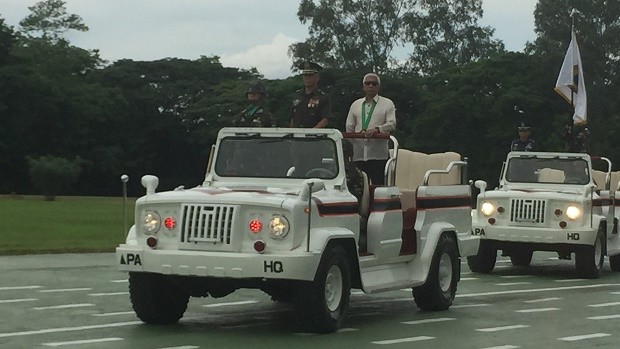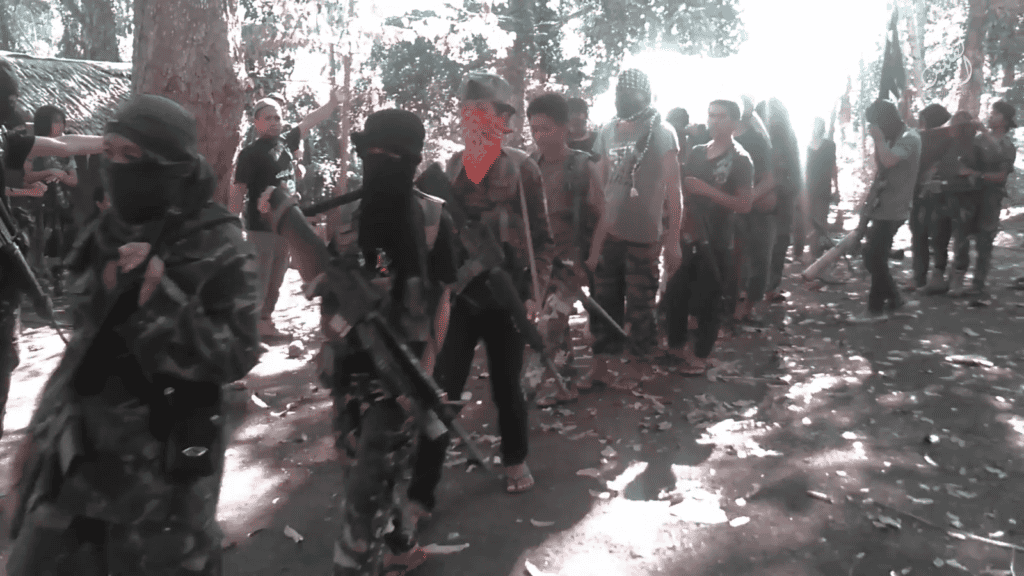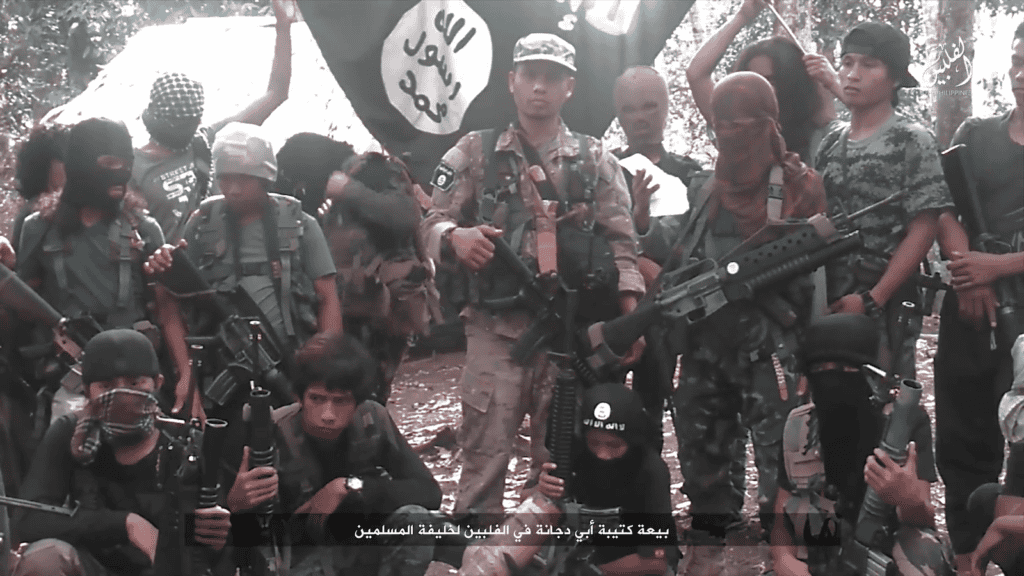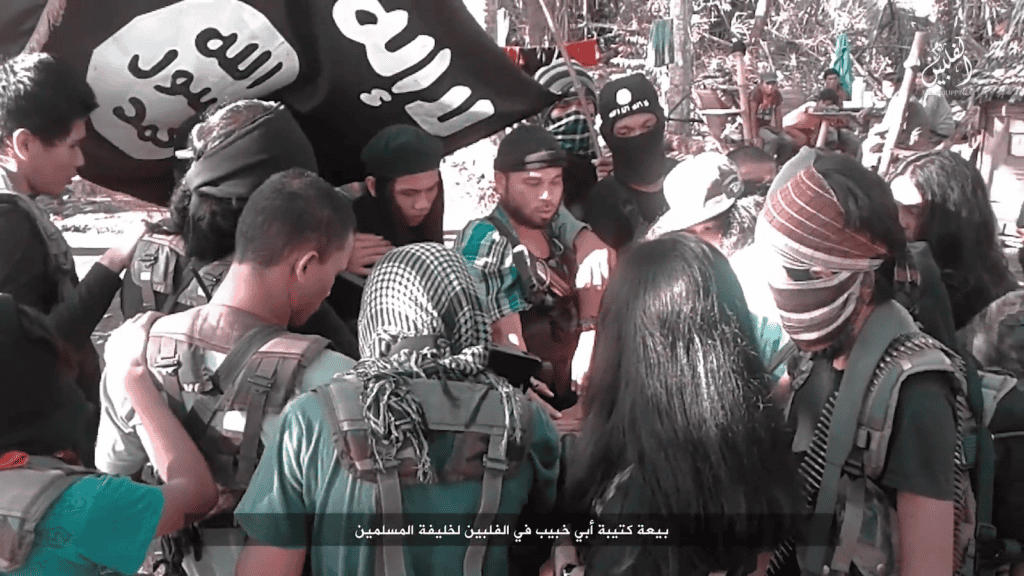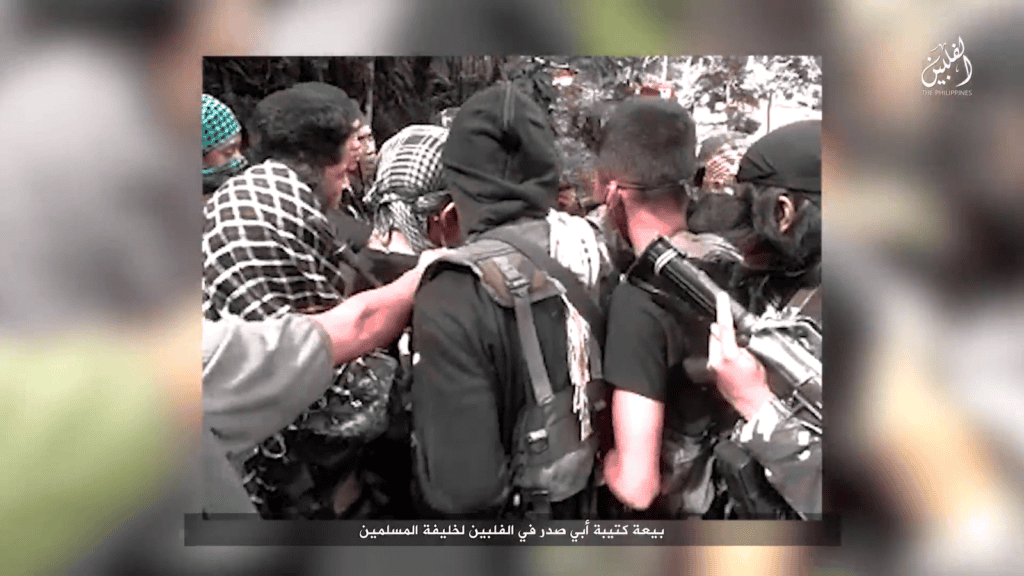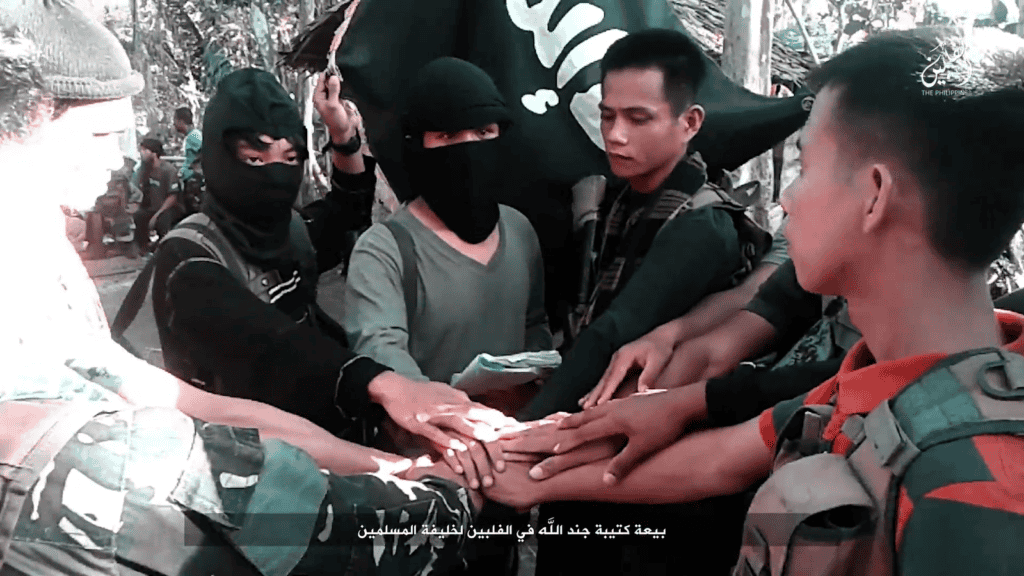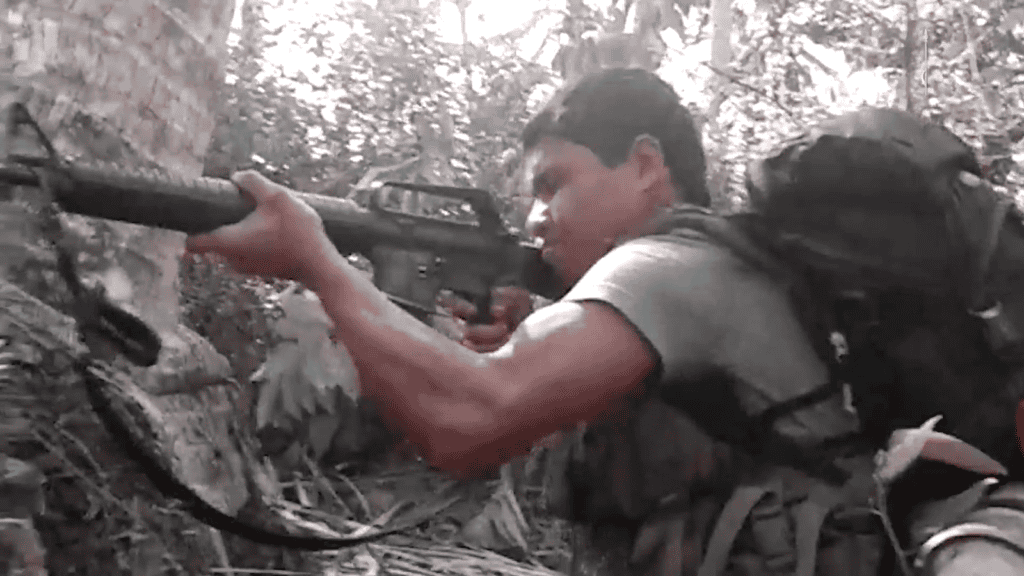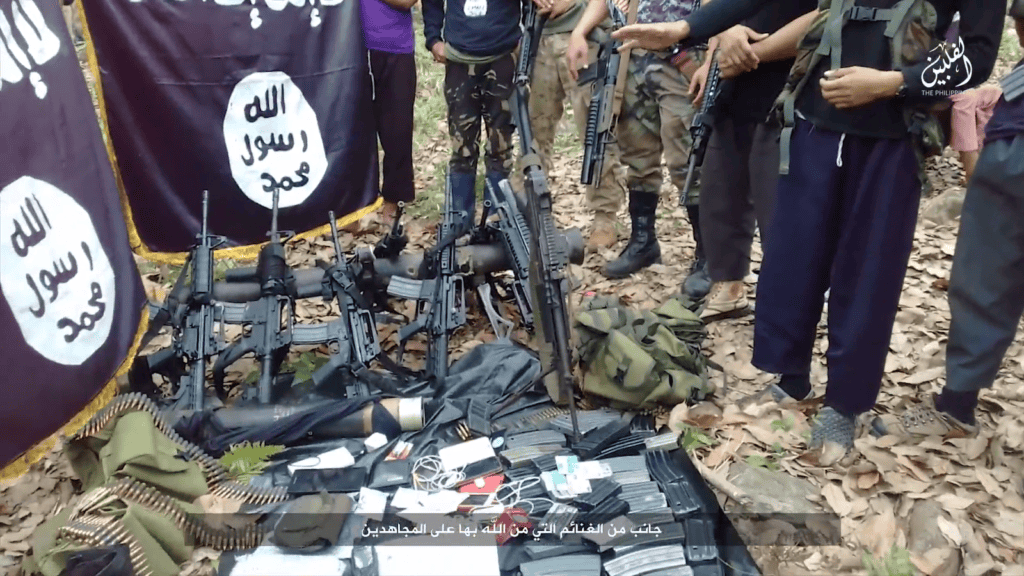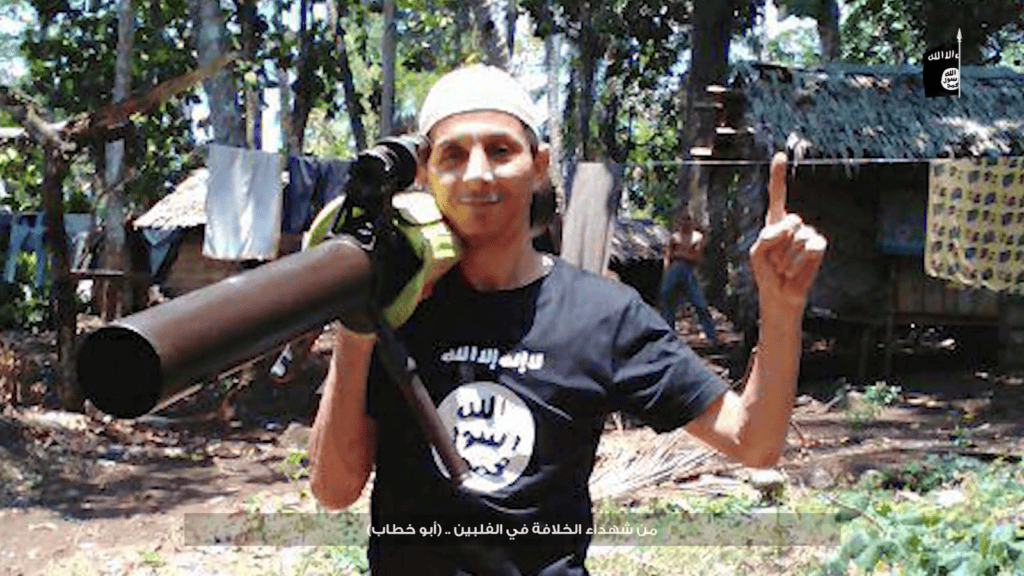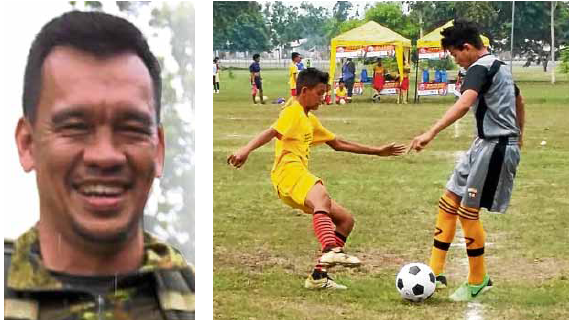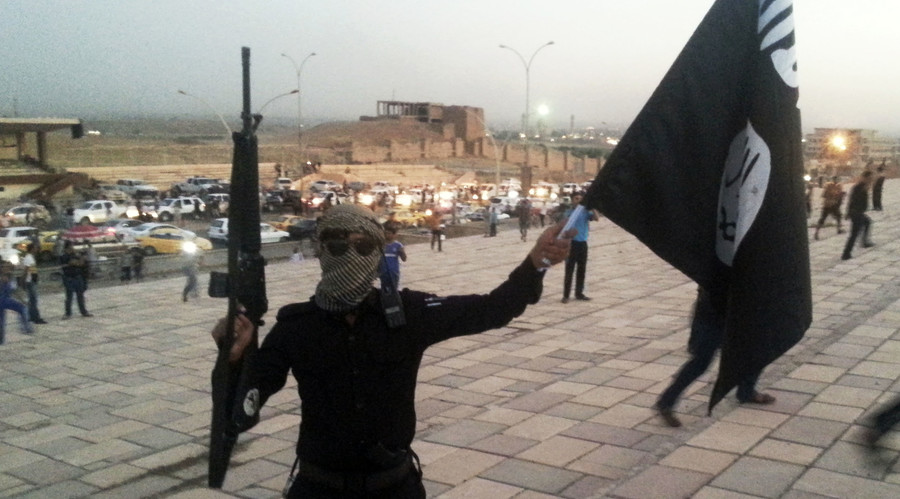From the Asia-Pacific Policy Society (APPS) Policy Forum (Jun 24):
Duterte and prospects for Bangsamoro peace
Without a durable political solution, the southern Philippines looks likely to regress into pervasive insecurity, writes Zachary Abuza.
Since his 11 May election, Rodrigo Duterte has shocked the world with his calls for the killing of journalists, the posting of bounties for the extra judicial killings of drug lords, and his slew of sexist comments, to the point that his advisors are not letting him do any more interviews with the media.
The lewd and bombastic Davao mayor Duterte wants to be seen as a tough guy, but comes off as a loose cannon. He has already displayed problematic inconsistencies in policy, including the Bangsamoro Peace Process.
To recap, the Framework Agreement between the Government of the Republic of the Philippines (GRP) and the Moro Islamic Liberation Front (MILF) was signed in October 2012, which then moved on to the drafting of 3 Annexes: on revenue sharing, on power sharing, and on normalisation (disarmament, demobilisation and rehabilitation of MILF combatants). In April 2013, President Aquino issued an executive order to establish the Bangsamoro Transitional Commission to draft the Bangsamoro Basic Law (BBL), the implementing legislation.
The Comprehensive Agreement on the Bangsamoro was signed in March 2014. The following month, the Bangsamoro Transition Commission submitted the draft BBL to the President, but their draft was largely re-written. After months of heated talks, the MILF acquiesced and the President submitted the revised BBL to Congress for passage in September 2014.
The goal was to have it passed by the first quarter of 2015 at the latest, as it required a plebiscite, the establishment of an interim government, and the transformation of the MILF into a legal political party. This all had to be accomplished by the 2016 elections, as the existing (and deeply failed) Autonomous Government of Muslim Mindanao would not stand for re-election, thus dissolving itself.
The BBL was already facing hurdles in Congress when an uncoordinated attack by a police special forces unit entered MILF territory in pursuit of two wanted terrorists. The Mamasapano incident led to the death of 44 Special Action Forces, and the photographs of 44 flag-draped coffins made it all but impossible for the government to win both congressional and popular support. Congressional hearings became even more toxic, ahead of presidential elections. Mamasapano was a tactical failure with strategic implications.
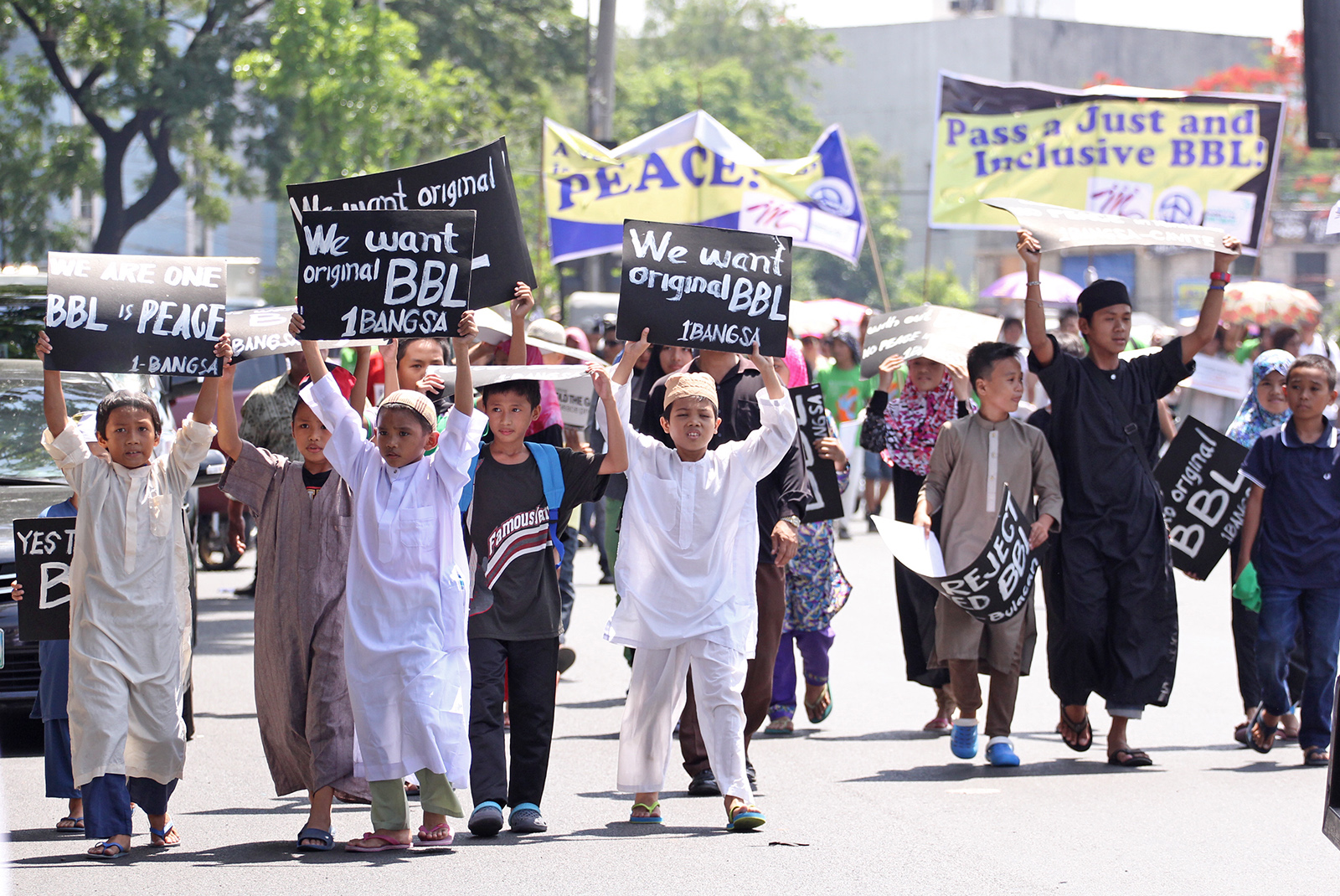
In December 2015, the House
failed to pass the Bangsamoro Basic Law (BBL), meaning that by law the legislation had to be resubmitted to the next congress, which would have to start from scratch in terms of hearings and the legislative process. No presidential candidate condemned Congress’ inaction.
That was no surprise as four of 24 senators either ran for president or vice-president and they used their assaults on the BBL to burnish their credentials. Several of the senators most involved in the scuttling of the BBL were presidential candidates (Grace Poe, Miriam Defensor-Santiago) or vice-presidential candidates (Alan Peter Cayetano, Ferdinand Marcos Jr).
The Aquino administration did try to assure the MILF that the Comprehensive Agreement on the Bangsamoro (CAB) remained in place and was binding despite the failure to pass implementing legislation. But the MILF’s concerns were palpable. And as the BBL went un-passed, the MILF had no legal obligation to disarm, which continued to irritate Philippine politicians.
While none of the presidential candidates were against the peace process, their support for it was highly qualified. Only one, the President Aquino’s hand chosen successor, Mar Roxas, campaigned
promising to push the BBL through Congress at the next session. All other candidates pledged support for the peace process in principle, but were very short on details.
While Duterte spoke of injustices and his centrepiece of political devolution through the establishment of a federal system, his support for the peace process was contradictory. In July 2015, he was critical of congressmen not from Mindanao who
failed to understand local issues, and pledged his support for the BBL. He did travel to the MILF’s Camp Darapanan in February 2016, where in an
audience with the Central Committee he spoke empathetically: “I know you are very frustrated and I know you are hurt. This could have created a problem had it not been for the moderation of the Central Committee.”
More importantly, he said that the BBL was a “template” for the country. But even here he said that he would only push for passage of the BBL if Congress embraced federalism. As he
said: if federalism “will be undertaken by a Constitutional Commission, and thereafter if I am contented and it is gaining ground, BBL will be incorporated into the Constitution as an organic law of the Federal Republic of the Philippines.” Then he immediately contradicted himself: “if it [a constitutional amendment] takes time, and if only to defuse tension, in my government I will convince Congress to pass the BBL then make it as a template for federal states.”
Overall, the peace process was a very low priority in the presidential campaign, reinforcing the concern among the Moro that there is no place for them within the Philippine national narrative or construct. The MILF, for its part, did not endorse a candidate. And the MILF’s legally registered political party, the United Bangsamoro Justice Party (UBJP) ran no candidates.
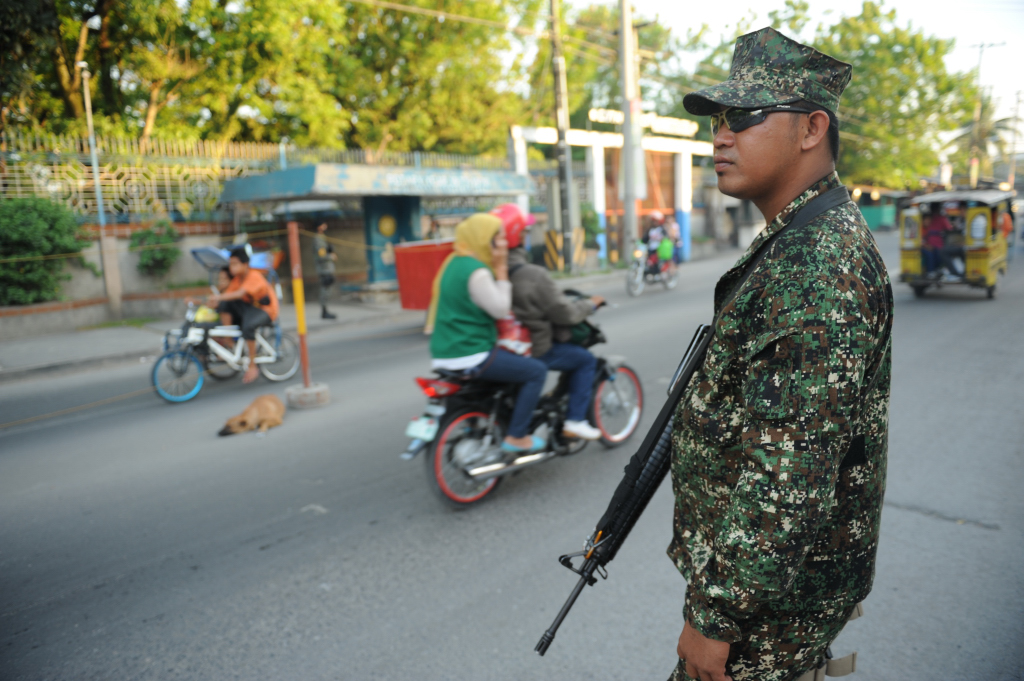
Image by Guy Oliver / IRIN
Upon Duterte’s victory in the presidential election, the MILF welcomed him as a “
true son of Mindanao.” Chairman Ebrahim el Haj Murad said Duterte’s “message of justice, freedom, equality and social justice resonates with our aspiration for genuine change.” Murad said that the MILF shared Duterte’s belief that the “status quo is unacceptable.” In an 11 May letter to the president elect, Murad
wrote that the MILF was “highly optimistic and confident that your victory would carry with it our hopes and aspirations for peace and justice in Mindanao.”
But the MILF’s hopes were soon dashed. Duterte is famously anti-Manila, and has threatened to run the country from his home in Davao, while surrounding himself with advisors from Mindanao. Traditional elites and technocrats from Manila and Makati have been largely shut out.
Although Duterte has placed key allies from Mindanao in his cabinet, they are largely hostile to the MILF and the peace process. Duterte immediately selected
Jesus Duereza as his advisor on the peace process. Duereza held the same position in the cabinet of Gloria Macapagal Arroyo from 2001 to 2003. Duereza had a terrible reputation as a
back-channel wheeler dealer. The MILF never trusted him, in particular following the government’s 2003 offensive against a major base camp on the eve of peace talks in Malaysia.
Duterte and Duereza’s quick appeal to the Moro National Liberation Front (MNLF), including offering to meet Nur Misuari, still a fugitive from justice but who
publicly endorsed Duterte, reminded the MILF of Duereza’s history of trying to pit Moro groups against one another.
In addition, Duterte selected a North-Cotabato based Christian politician as his Secretary of Agriculture. Manuel Piñol had cut his teeth as an elected official in North Cotabato, where some of the most fierce fighting between the government and the MILF, and later the Bangsamoro Islamic Freedom Fighters, has taken place. North Cotabato has always been contested space between Christian dominated eastern Mindanao and lands claimed by the Bangsamoro. Piñol has been a
leading critic of the BBL and a hardline Christian advocate within Congress, opposing the peace process.
Finally, Duterte named Salvador Panelo, the
former defense lawyer for the Ampatuan clan, a clan responsible for the murder of 58 people, including 32 journalists in 2009, as his presidential spokesman. That is telling in itself. The Ampatuans are fierce rivals of the MILF, with, what is described as “
rido” or clan wars, armed skirmishes between the MILF and the Ampatuan’s large private army, often taking place.
So despite his Mindanao-dominated cabinet, the MILF leadership completely mistrusts them. It is more than their lack of commitment to the BBL or empathy with the plight of the Moros that has given the MILF leadership cause for concern, but the issue of federalism that has caused the greatest consternation. Duterte’s signature policy plan (apart from killing criminals), is the transformation of the Philippines into a federal system. In his February meeting with the MILF leadership he
said, “I have been proposing federalism. But your territory will not be touched.” But since then, his team’s pronouncements have belied that.
The MILF is not opposed to Duterte’s plan,
per se. But they always saw it as something that would augment the BBL and the establishment of the Bangsamoro, not supplant it. The MILF was in for a shock when Duterte’s candidate to be the speaker of the house, Congressman Pantaleon Alvarez, stated that the Duterte administration had no plan to re-submit the BBL to Congress. He said the CAB had been “rendered moot” as the Duterte administration was simply going to pursue a constitutional amendment and popular referendum by 2019 to establish a
federal system.
On 28 May, Duterte backtracked and said that he would resubmit a version of the BBL. However, he wasn’t enthusiastic and seemed unwilling to use his electoral mandate to push for its passage. He again
defaulted to federalism. ”If Congress cannot enact into law the proposed Bangsamoro Basic Law, then we can pursue our collective dream of peace and prosperity via federalism.”
Any constitutional amendment is by definition a tall order, requiring three-fourths approval by both houses of Congress, or a constitutional convention and then a popular referendum. Despite several attempts to amend the 1987 constitution, none have made it to the referendum phase.
The MILF are very concerned that the future of the peace process was going to be dependent on such a fraught process, with little likelihood of success. In an editorial on their website, the MILF called the proposal a “
non starter” that “does not build confidence that the Duterte administration understands the Bangsamoro problem.”
While the MILF couched their criticism, saying that Alvarez might not have been speaking for the Duterte administration, they were clearly signaling that anything short of the implementation of the CAB would be unacceptable.
“There are peculiarities that are unique to the Bangsamoro but are not present in the other possible federal states, which are predominantly Christians, such as the issues of
shariah,
madrasah systems, [the] need for Bangsamoro police, etc. Even in terms of narrative, the Moros have their distinct history.”
And they warned that without implementation of the CAB, there would be no disarmament or demobilisation. “How would he address the issue of MILF’s weapons and combatants and the need to normalise the situation?”
A federal system may be beneficial for the country as a whole, but it does not give the MILF the sense of special cultural identity, distinct from the Philippines, or that the government is trying to address historical wrongs, including having transitional justice mechanisms and a recognition of the “Ancestral Domain” of the Moro people.
Moreover, the MNLF’s quick embrace of federalism, with Duterte’s olive branch to them, does not bode well. Duterte continues to speak of the 1996 Accord, while the MILF crafted the CAB and the BBL as a way to supersede it. Duterte’s insistence that the
Moro National Liberation Front (MNLF) had to be part of the process, ignored the fact that the MNLF in general, and Nur Misuari in particular, have consistently refused to work with the MILF during the peace process despite frequent overtures. And all that despite the fact that the CAB and BBL created a mechanism for the MNLF to have considerable political power in the Bangsamoro government through the establishment of a parliamentary system.
From 29-30 May, the respective peace panels met in Kuala Lumpur, where they issued a statement calling for the continuity of the peace process. It was the last meeting with the stalwart defenders of the Peace Process and advocates for the passage of the BBL, Ging Deles and Miriam Ferrer Coronel, who were condemned by critics in Congress as “traitors.” Indeed one congressional critic filed treason charges against them, which were only rejected by the Office of the Ombudsmen on 9 June 2016.
The parties signed the Declaration of Continuity of the Partnership of the GPH and MILF in the Bangsamoro Peace Process that pledged both sides to continue to fully implement the
Comprehensive Agreement on the Bangsamoro. Though he did not attend the meeting, Duereza sent a
note to the respective panels. While he did not explicitly state that the Duterte administration would push for congressional passage of the BBL, he said: “We intend to continue with the gains and build on those already done and achieved. The roadmap that we will traverse hereon will take policy guidance and direction from the new President when he assumes office on 30 June, 2016.”
Even if the Duterte administration decides to submit the implementing legislation to Congress, it is very likely not going to be the original piece of legislation submitted in September 2014. The government will most likely submit a watered down draft, stripping away much of the MILF’s autonomy, arguing that the original bill could not garner sufficient Congressional support. This, in itself, will be a major irritant to the MILF leadership and their rank and file.
On 18 June, Duterte hosted leaders of both the MILF and the MNLF in Davao for a
two hour meeting. The MILF was represented by chairman Al Haj Murad Ebrahim and MILF vice chairman for political affairs Ghadzali Jaafar, while the MNLF was represented by Datu Abul Khayr Alonto.
Alonto was quick to endorse the president elect’s plan for federalism: “The centralised form of government has been a dismal failure. That is precisely (the reason) why you still have war in Mindanao.” The MILF continued to be more suspect and reiterated that to would continue to push for
passage of the BBL as originally submitted.
Days after Alonto announced that the two groups would hold a “
Bangsamoro convention”, but the problem with that is the MNLF is so woefully factional it’s not clear he can get Nur Misuari’s Sulu-based faction to go along. And the MILF made very clear that Duterte’s call for greater inclusion was unnecessary after more than
625 consultations with civil society and key stakeholders between 2014 and 2015. Any further consultations would be viewed by the MILF as an attempt to forestall or further dilute the BBL.
With the peace process on indefinite hold, it was no wonder that regional security continued to plummet. While the MILF has kept most of its base commanders in line, and largely committed to the peace process, it also has no incentive to serve as a responsible stakeholder and effectively police its territory. Two of the six groups that have openly declared allegiance to IS, Anshaur al Khalifah Philippines and Dawlah Islamiyah (often referred to as the Maute group), operate in its territory. Both are increasingly lined to terrorist cells in Malaysia and Indonesia. And IS is trying to bring the different groups together under a single chain of command, calling each of the groups a “battalion.” With the territory and manpower of parts of the MILF, IS and its Philippine affiliates may finally declare the establishment of a province or
wilayat.
Without a durable political solution, the southern Philippines looks likely to regress into pervasive insecurity, a growth of ungoverned space, with both national and regional security implications. Duterte’s statement that the Philippines will push for its claim to
Sabah, which had been dormant since the first Aquino administration, is likely to infuriate Kuala Lumpur, already lacking enthusiasm to continue funding the International Monitoring Team or facilitating the peace process.
All this raises a troubling question of how the MILF leadership can continue to manage expectations and maintain command and control over their combatants, who may defect to more radical groups. Individually these groups pose no real threat, but if they are united or receive an infusion of personnel from the MILF, then the security situation in the southern Philippines looks likely to devolve, and a peace that was once in their grasp, slipping away.
Duterte’s mixed messages have done little to assuage these fears.
[Zachary Abuza, PhD, is Professor at the National War College where he specialises in Southeast Asian security issues. The view expressed here are his own, and do not reflect the views of the Department of Defense or National War College. Follow him on Twitter @ZachAbuza.
This article is published in collaboration with New Mandala, the premier website for analysis on Southeast Asia’s politics and society.]
http://www.policyforum.net/tbc/

